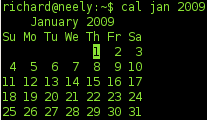 The new National Security Strategy (.pdf) says the following about "cyberspace":
The new National Security Strategy (.pdf) says the following about "cyberspace":Secure Cyberspace
Cybersecurity threats represent one of the most serious national security, public safety, and economic challenges we face as a nation. The very technologies that empower us to lead and create also empower those who would disrupt and destroy. They enable our military superiority, but our unclassified government networks are constantly probed by intruders. Our daily lives and public safety depend on power and electric grids, but potential adversaries could use cyber vulnerabilities to disrupt them on a massive scale. The Internet and e-commerce are keys to our economic competitiveness, but cyber criminals have cost companies and consumers hundreds of millions of dollars and valuable intellectual property.
The threats we face range from individual criminal hackers to organized criminal groups, from terrorist networks to advanced nation states. Defending against these threats to our security, prosperity, and personal privacy requires networks that are secure, trustworthy, and resilient. Our digital infrastructure, therefore, is a strategic national asset, and protecting it — while safeguarding privacy and civil liberties—is a national security priority.
We will deter, prevent, detect, defend against, and quickly recover from cyber intrusions and attacks by:
Investing in People and Technology: To advance that goal, we are working across the government and with the private sector to design more secure technology that gives us the ability to better protect and to improve the resilience of critical government and industry systems and networks. We will continue to invest in the cutting-edge research and development necessary for the innovation and discovery we need to meet these challenges. We have begun a comprehensive national campaign to promote cybersecurity awareness and digital literacy from our boardrooms to our classrooms and to build a digital workforce for the 21st century.
Strengthening Partnerships: Neither government nor the private sector nor individual citizens can meet this challenge alone — we will expand the ways we work together. We will also strengthen our international partnerships on a range of issues, including the development of norms for acceptable conduct in cyberspace; laws concerning cybercrime; data preservation, protection, and privacy; and approaches for network defense and response to cyber attacks. We will work with all the key players — including all levels of government and the private sector, nationally and internationally — to investigate cyber intrusion and to ensure an organized and unified response to future cyber incidents. Just as we do for natural disasters, we have to have plans and resources in place beforehand. (emphasis added)
*Yawn*. What a disappointment. So, we're going to "secure cyberspace" through "investing in people and technology" and "strengthening partnerships." Lame. Weak. I'd go so far to say irresponsible. It's clear that the national digital security policy situation has degraded since the President's speech on cyber security last May. That's right, it's been one year and all the President has to show on this is... Howard Schmidt, who is mostly famous for saying "There is no cyberwar" because "There are no winners in that environment." He also said:
"A cyberwar is just something that we can't define," he said. "I don't even know (how a) cyberwar would benefit anybody. Everybody would lose. There's no win-lose in the cyber realm today. It affects everybody; it affects businesses, it affects government, so number one, there's no value in having one."
What a disappointment.






 Recently I participated in a small meeting involving a cross-section of people interested in digital security and public policy. During the meeting one of the participants voiced the often-repeated but, in my opinion, misguided notion that the primary problem with digital security is "design." In other words, "the Internet was not designed to be secure." If the Internet was not designed to be secure, all applications are "built on a foundation of sand" and therefore can never be "secure."
Recently I participated in a small meeting involving a cross-section of people interested in digital security and public policy. During the meeting one of the participants voiced the often-repeated but, in my opinion, misguided notion that the primary problem with digital security is "design." In other words, "the Internet was not designed to be secure." If the Internet was not designed to be secure, all applications are "built on a foundation of sand" and therefore can never be "secure." In my
In my  I wanted to remind everyone about the
I wanted to remind everyone about the  I just read this great post by Rich Mogull titled
I just read this great post by Rich Mogull titled 











